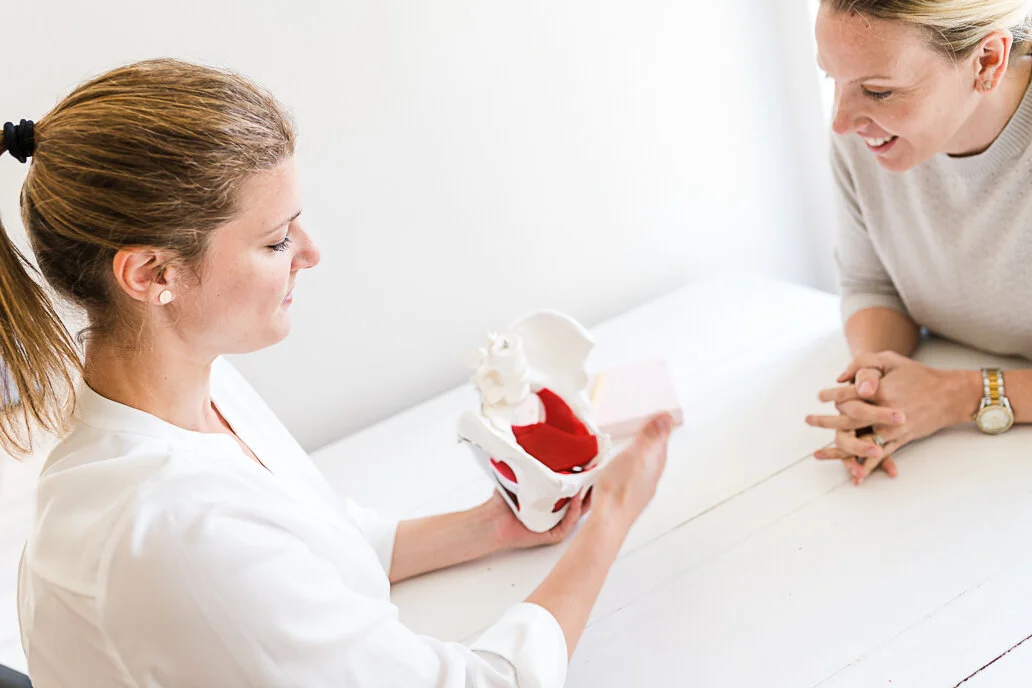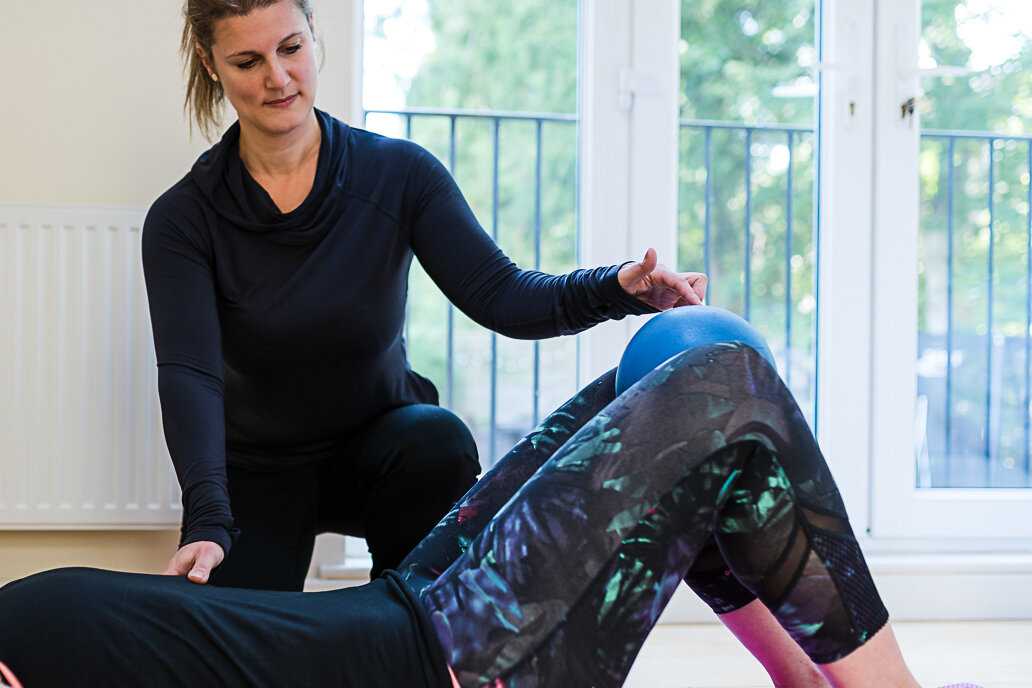Women’s Health Physiotherapy Demystified
By Claire Rutherford
Most people have heard of physiotherapy but women’s / pelvic health physiotherapy - not so much. What on earth is women’s health physiotherapy I hear you ask? It’s a highly specialist area of physiotherapy which involves assessing and treating conditions related to the pelvis and pelvic floor in women.
86% of women will have a baby at some point in their lives and all women will go through the menopause at some point. These are two key events in a woman’s life which involve huge changes physiologically, most of which are within the pelvic area. With this in mind, it makes sense that these might therefore be times when unwanted symptoms in the pelvis may start to arise, although to be clear, these can arise at any time in a woman’s life. Symptoms like incontinence, an over-active bladder, pelvic pain, prolapse and painful sex. These can all have a huge impact on how you feel as a woman, your quality of life, your confidence and your ability to just be you.
What does a women’s health physiotherapist commonly see patients for:
Incontinence – urine, stools or wind
Pelvic organ prolapse
Rectus diastasis (tummy separation)
Scar tissue healing following a caesarean, perineal tear or gynecological surgery e.g. hysterectomy
Painful sex, inability to have a smear test and / or insert tampons
Lower back, pelvic or coccyx pain in pregnancy and postnatally
Increased frequency, urgency or hesitation when needing to empty the bladder
Constipation
Preparing for and recovering after gynaecological or abdominal surgery
An inability to engage the pelvic floor muscles correctly
Pregnancy check-up – how to prepare for birth, optimal birth positions, how to protect your pelvic floor and better navigate your recovery in the early weeks after birth
Mummy MOT / Postnatal check-up – comprehensive tummy, pelvic floor, movement, breathing, posture check and individualised recovery plan
Menopause check-up
What to expect when you see a women’s health physiotherapist?
A women’s health physiotherapist will begin by asking you lots of questions about you. What’s bothering you, your symptoms, your birth story (if you have one), your gynaecological history and what you’d like to achieve from your physiotherapy appointment. Then we talk anatomy and educate you about your pelvis, pelvic floor and the area of concern because knowledge is power right? It makes sense that understanding how you function makes for far more successful rehabilitation and greater motivation.
Then with your consent, we examine you and look at the area causing you bother. This will often involve assessing your pelvic floor, your tummy muscles, any scar tissue, the strength of other muscles, your breathing and how you move.
A pelvic floor examination is an invaluable part of any pelvic health examination and really helps to put all the pieces of the puzzle together. When it comes to the pelvic floor muscles we are looking at how strong they are, their co-ordination, their endurance, their ability to relax fully, their reflexive activity as well as their ability to yield and absorb force like when you run or jump. Just like when you want to know more about how well any other part of your body is working, you need to have a look at it. For the pelvic floor this is done by doing a pelvic floor examination.
What does a pelvic floor examination involve?
This is always done with your consent and is not like having a smear test – no speculums or other instruments are used. You would normally be examined in lying initially but then in more functional positions such as standing in time. The women’s health physiotherapist will insert one gloved finger with some lubrication on into the vagina to assess and palpate your pelvic floor muscles. Any pelvic organ prolapse will also be assessed for and perineal scars looked at for healing.
The examination should never be painful and yes, you may feel a little embarrassed but for us this is something we do every day so please don’t worry about how things look down there and I promise we really do not care when you last had a bikini wax! A common question I get asked, is whether an examination can still happen when you have your period and the answer is yes, it makes no difference to us. However, if you don’t feel comfortable with this you can reschedule.
After the examination is finished, we discuss all our findings with you, answer your questions and make a treatment plan which may involve lifestyle advice, manual therapy, pelvic floor re-education and rehabilitation as well as other exercise and / or biofeedback.
If you think you may benefit from women’s health physiotherapy or you would like to make an appointment, contact Claire on 07866 608716 or info@lafemmephysio.co.uk





